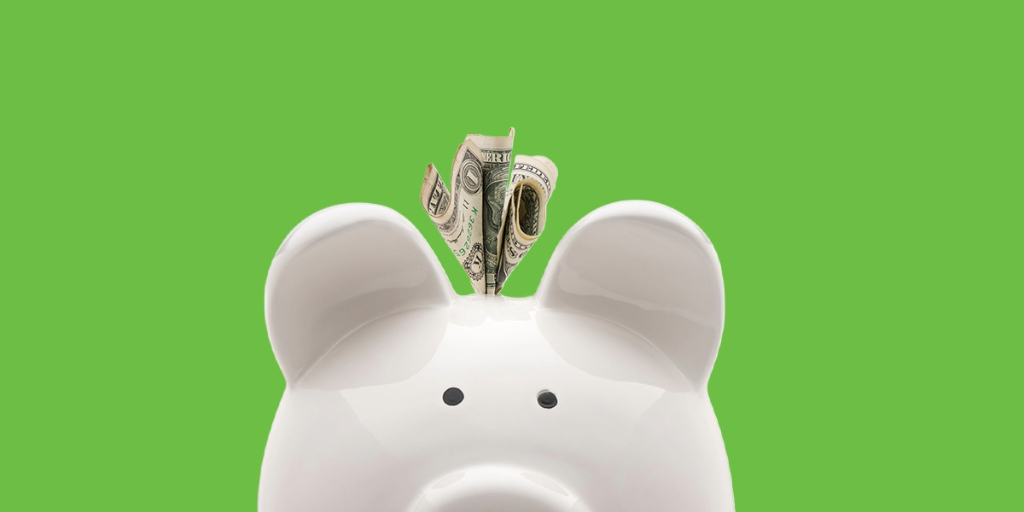10 First Apartment Expenses You Need in Your Budget
Minute Read

(Edited by Shauna Scarnato)
Moving into your first place is an exciting step toward independence. While living on your own comes with freedom, it also comes with financial responsibilities. Before signing a lease, it’s important to understand what expenses to expect so you can set yourself up for success.
Wondering what to include in your apartment budget? Here are 10 essentials to prepare for:
1. Rent
Try to keep rent at or below 30% of your gross monthly income (income before taxes are taken out). This can vary depending on where you live, but it’s a solid rule of thumb for staying financially stable. Lease agreements are typically monthly or yearly. If yearly, rent should remain the same for the entire year. Month-to-month leases may be more flexible—but often come with frequent rate increases. Read your lease carefully and don’t forget to plan for a security deposit, typically due at signing.
2. Application and Move-in Fees
Before you sign a lease, you may need to cover application fees, background check costs or administrative charges. Some landlords also charge move-in or amenity fees or require you to pay for parking passes or key fobs. These upfront costs can add up quickly—so factor them into your overall budget.
3. Renters Insurance
Renters insurance protects your belongings in case of theft, fire or other unexpected events, and many landlords require it. The good news? It’s usually affordable and can save you thousands in potential losses. Shop around to compare rates and consider bundling with auto insurance for added savings.
4. Utilities
You may be responsible for paying for some or all of these common utilities:
-
Electricity
-
Heat
-
Water/sewer
-
Trash/recycling
Ask your landlord what’s included in your monthly payment and what’s not. Set reminders or autopay to avoid late payments, and always keep enough in your account to cover the bills. Otherwise, companies may shut off their service. Also, monitor usage and consider cutting back where you can.
5. Technology
Internet, cable and streaming services add up quickly. Look for bundles or first-time renter discounts from service providers. Evaluate what you truly need—could you skip cable and stick to one or two streaming platforms? Even small savings in this area often make a noticeable difference in your monthly expenses.
6. Furniture and Household Items
Most apartments come unfurnished, and stocking a new space can get expensive fast. Before buying anything new, take inventory of what you already own. Focus on essentials first—like a bed, basic kitchen tools and bathroom items. Look for discounted items or freebies in thrift stores and social media groups or ask friends and family for extras that they are not using. Skip the professional movers if possible. Instead, lean on loved ones to help you move.
7. Groceries
Living on your own means managing your meals and food budget. Start by estimating how often you will cook at home versus eating out. Buying groceries and preparing meals is almost always more cost-effective than dining out regularly.
To keep grocery spending in check:
-
Make a list before shopping to avoid impulse buys.
-
Look for store loyalty programs or digital coupons.
-
Consider meal prepping or shopping sales to make your money go further.
8. Transportation
How you get around will directly impact your monthly expenses. If you own a car, factor in:
-
Gas
-
Maintenance
-
Parking fees
If you plan to use public transportation, research your local options. Many cities offer discounted monthly passes or reloadable fare cards. Whether you're driving or riding, choosing the most economical and practical option for your lifestyle will help keep money in your pocket.
9. Laundry
If your unit doesn’t include a washer and dryer, be prepared to pay for laundry. Many buildings have on-site machines that require coins or prepaid laundry cards. If not, you may need to visit a local laundromat. These costs can add up over time—so plan accordingly and have quarters handy.
10. Miscellaneous Expenses
Don’t forget to build in a buffer for other costs. These might include:
-
Gym memberships (if you are relocating to a new area)
-
Cleaning supplies
-
Subscriptions (like Spotify or Amazon Prime)
-
Home décor or organizational items
A little wiggle room in your budget can help you handle these without stress.
Bonus Tip: Consider a Roommate
Want to lower your costs even more? Splitting rent and bills with a roommate can make apartment living more affordable—and more fun. Just make sure to set shared expectations around finances and responsibilities.
Start Saving for Your Apartment with Members 1st
We’re here to help you reach your financial goals—from your first place to your forever home. Explore our savings options and budgeting resources to start planning today. With features like online banking, a mobile app and our Visa credit cards, we make it easy to manage your money, earn rewards and stay on track—wherever life takes you.
Federally Insured by NCUA. We do business in accordance with the Federal Fair Housing Law and Equal Credit Opportunity Act.



